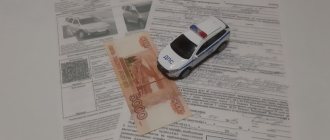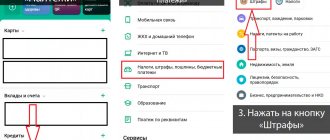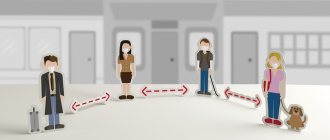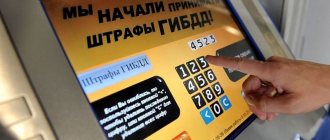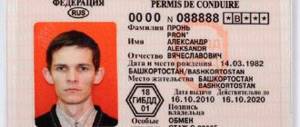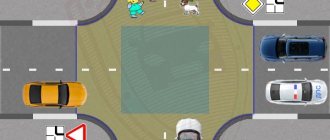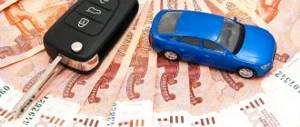Recently, many innovations related to road safety have appeared in the legislation of the Russian Federation. All of them are taken with a purpose. Any violation of traffic rules was always followed by one punishment or another. But not all drivers know that for cases of repeated disregard of the rules, tougher penalties are now provided. Basically we are talking about violations that can lead to serious accidents and for this reason are punishable by large fines or confiscation of the driver's license for a long time. The question arises: what does “repeated traffic violation” mean, and under what circumstances is it recognized? The exact definition of this concept is contained in the Administrative Code.
When do violations fall into the “repeated” category?
A single violation most often entails a standard fine. But after non-compliance with the rules is recorded by a traffic police officer and an appropriate decision is made, the likelihood of a repeat violation arises.
According to Article 4.6 of the Code of Administrative Offences, a citizen who has committed a violation and paid a fine is considered to be punished within the next 12 months. And if during this time a similar violation occurs again (namely, within the framework of one article of the code), it is recognized as repeated. Thus, the period for repeated traffic violations is 1 year.
The exact scope of this period is associated with most ambiguities. It is important to remember that it does not count from the moment of the violation. Only the sentencing decision will be marked with this date. Then the offender is given a certain period of time - 10 days. If the appeal does not occur, the administrative penalty comes into force, but this is not the beginning of the period. And it starts from the day the fine was paid. If, as a punishment for the first violation, the driver’s license was taken away, then the period for repeated traffic violations begins to apply only after the period of deprivation has expired.
Having stopped a violator, traffic police officers can always query the database and find out whether he has unpaid fines and whether similar cases have been recorded against him. And if similar precedents have already taken place over the past 12 months, the inspector notes this and transfers the report to the police department or to the court, where the punishment will be established. It is worth noting that even if the traffic police officer did not immediately request data on similar violations, this will certainly be done after sending the report to the police.
What is the penalty for repeat violation?
Not all offenses are punishable by tougher measures. But in some cases, special punishment is provided for repeated traffic violations:
- lack of vehicle registration certificate;
- speeding by 40 km/h or more;
- driving on "red";
- driving onto oncoming traffic or tram tracks;
- violation of the rules for crossing a railway crossing.
For all these violations (except for the second paragraph), the Administrative Code imposes sanctions in the form of deprivation of a driver’s license for up to 12 months or a fine of up to 5,000 rubles. But what kind of punishment will follow depends on the exact circumstances.
The most severe penalties are applied to persons repeatedly caught driving while intoxicated. Even before the amendments were adopted, driving in this state threatened the driver with deprivation of his license for a long period and a large fine. But since 2015, an amendment has been made to the law regarding such cases. Now they can entail not only administrative liability. A criminal case may be opened against the driver, as a result he will receive a fine of up to 300,000 rubles or be imprisoned for up to 2 years.
Drivers should remember that violations recorded by photography and video are not subject to deprivation of rights. In these cases, only the collection of an administrative fine is possible.
In the situation with the confiscation of a driver’s license, there is another important point. To get your license back, you must successfully pass a theoretical test on traffic rules, having paid the state fee in advance. It must always be taken, regardless of the period of deprivation.
What kind of punishment will follow for a repeated violation depends on the characteristics of the driver and all the circumstances of the situation. The final decision is always made by the court, not by traffic police inspectors. It happens that police officers do not take into account the fact that the period for repeated violation has already expired, and issue increased fines. In this case, the driver always has the right to appeal to the judicial authorities and appeal the inspector’s decision.
The other day I had a dispute with a traffic police inspector who wanted to fine me for allegedly committing an administrative offense again. The fact is that in May last year I was fined for speeding. Until the end of the specified month, I paid the fine through State Services and continued to drive the car calmly.
More than a year has passed since I was stopped again for exceeding the amount, and now the inspector stated that since the money arrived in the account only in June, I am being issued a fine in an increased amount, since I am a repeat offender and not a year has passed since I was recognized as a violator.
When they began to look into the issue, I was able to prove with the help of an extract from the State Services portal that the transfer was sent before the end of May, and why the payment was delayed by the system or the bank no longer concerns me. As a result, I got off with a standard fine, which I paid immediately. To avoid such a situation, I would like to give readers a number of tips regarding repeated traffic violations and the penalties imposed.
The last few years have seen a serious tightening of sanctions applied to traffic violators. The drafters of the rules paid special attention to persons who committed an offense repeatedly. According to legislators, such solutions can reduce the percentage of accidents and thereby make traffic on highways and roads safer for all participants. Radical amendments affected the amount of penalties and the procedure for determining other penalties.
The definition of the concept is given in Art. 4.6. The Code of Administrative Offenses of the Russian Federation, which clearly states that if a citizen who has violated traffic rules repeats his offense within the next 12 months, he will be considered a repeat offender and more severe penalties can be applied to him. When determining who may be a violator who has committed an administrative act repeatedly, you should carefully consider the existing regulations.
Examples of repeat violations
Let's look at a few examples:
If Andrey drives into the oncoming lane again on September 1, 2020, he will no longer get away with a fine. The punishment for him will be deprivation of rights for 1 year (part 5 of article 12.15 of the Code of Administrative Offenses).
If Andrey drives into oncoming traffic on May 31, 2021 or later, the punishment will not be repeated, because More than a year has passed.
If Andrey enters the oncoming lane on May 7, 2021, the violation will not be considered a repeat violation, because the trial has not yet taken place and no ruling has been made.
If Bronislav commits a violation before April 30, 2021, it will be repeated.
Example 3. On April 30, 2021, Vadim was caught by traffic police officers while intoxicated.
On May 5, 2021, Vadim again found himself driving while intoxicated, however, since the trial in the first case has not yet taken place, the violation is considered as the first.
The trial in the first case took place on May 20, 2021, and a 14-month deprivation of rights was imposed. Starting from May 20, violations are considered repeated.
The trial in the second case took place on June 1, 2021, and a 16-month disqualification was imposed.
Vadim was in no hurry to submit his license to the traffic police and took it only on July 12, 2021. The period of deprivation is calculated from this date.
The period of deprivation ended on January 12, 2021, but Vadim was unable to pass the exam the first time. As a result, he received his license only on February 8, 2021. Within a year after this date, violations will be considered repeated.
Those. in this example, the violations are repeated from May 20, 2020 to February 8, 2022.
I am sure that the examples allowed you to understand what repeated traffic violations mean and in what cases it may occur. However, if you still have questions, write them in the comments to the article.
What aggravating circumstances may influence the choice of sanction?
The very fact of committing an offense is repeatedly considered as an aggravating factor. The fact is that since a citizen has already been punished for such an act, this should have the necessary impact on him. If this does not happen, then the judge and inspector should no longer be loyal to the driver. In practice, court decisions are almost always made not in favor of the offender.
However, the acts can be different and, taking into account the existing aggravating factors, the punishment can be very serious. We are talking about such moments as the desire to pass a red light in time or driving while intoxicated. In this case, the aggravating factor will be the increase in the degree of danger to others as a result of the actions committed.
Recording all road accidents and administrative fines in a single database will make it possible to identify repeated violations. To obtain the necessary information, the inspector only needs to make a request to the database and obtain the necessary information.
What types of fines and other penalties are provided for repeated traffic violations?
The measures taken against the culprit today are very strict. This was done specifically to make drivers more responsible and attentive. The system of penalties is very impressive:
- In case of repeated driving through a red signal and a prohibiting gesture on the part of the inspector, a fine of 5 thousand rubles or deprivation of driving license for a period of 4 to 6 months is provided.
- When driving an unregistered vehicle, the fine will be 5 thousand rubles or deprivation of rights for 1-3 months.
- Repeated driving while intoxicated is punishable by three years' imprisonment or 480 hours of community service. Additionally, a significant fine will be imposed.
- For transferring a vehicle to a drunk driver, he faces the same disciplinary action as in the previous paragraph.
- Exceeding the speed limit by 60-80 km/h is punishable by deprivation of rights for a year and a fine of 5 thousand rubles.
- When driving on the railway again, a fine of 5 thousand rubles is issued.
In any case, the final decision on the case is made by the judge who considers the appeal of the traffic police officer, but taking into account the recorded circumstances.
Fine 5,000 rubles for missing or altered numbers
The same amount of fine is imposed for driving a car with hidden (including with the help of special materials or equipment - curtains, etc.) license plates, for driving without license plates (in this case, if license plates have been issued for the car and must be installed, and not in cases where you can drive without license plates in a car that is not registered with the traffic police) and for license plates installed in the wrong place.
As an alternative to a fine of 5,000, deprivation of rights for a period of 1 to 3 months.
| Article and part of the Code of Administrative Offenses | 12.2, part 2 |
| Is there a range of fine amounts? | No |
| Alternative to a fine | Deprivation for 1-3 months. |
| Is there a repeat violation? | No |
| Security measures | No |
| Can it be issued by an auto-fixing camera? | No |
| Does the 50% discount apply? | Yes |
From what time does the period of repetition for a similar traffic offense begin to run?
According to Article 4.6 of the Code of Administrative Offenses of the Russian Federation, the statute of limitations for repeated offenses begins to run from the moment the period of deprivation of rights ends. This means, in our example, if a driver is repeatedly caught driving a car while intoxicated within a year after the end of the deprivation of rights, he will be subject to liability, according to the Code of Administrative Offenses of the Russian Federation for a repeated offense - 3 years deprivation of the right to drive a car + 50,000 rubles.
Let us remind you that on July 1, 2015, amendments to the Criminal Code of the Russian Federation also came into effect, according to which for repeated driving of a car (within 12 months from the end of the period of deprivation of rights for driving while intoxicated), according to which the court can impose a fine of 200 thousand to 300 thousand rubles.
«Article 264.1. Criminal Code of the Russian Federation:
Violation of traffic rules by a person subject to administrative punishment
Driving a car, tram or other mechanical vehicle by a person in a state of intoxication, subjected to administrative punishment for driving a vehicle while intoxicated or for failure to comply with the legal requirement of an authorized official to undergo a medical examination for intoxication, or having a criminal record for committing a crime provided for in parts the second, fourth or sixth article 264 of this Code or this article, -
is punishable by a fine in the amount of two hundred thousand to three hundred thousand rubles
or in the amount of wages or other income of the convicted person for a period of one to two years with deprivation of the right to hold certain positions or engage in certain activities for a period of up to three years, or compulsory work for a period of up to four hundred eighty hours with deprivation of the right to occupy certain positions or engage in certain activities for a term of up to three years, or forced labor for a term of up to two years with deprivation of the right to hold certain positions or engage in certain activities for a term of up to three years, or
imprisonment for a term of up to two years
with deprivation of the right to hold certain positions or engage in certain activities for a period of up to three years."
Let's give another example:
The driver was stopped by traffic police for driving through a red traffic light, for which he was subject to administrative liability in the form of a fine of 1,000 rubles. (Article 12.12 part 1 of the Code of Administrative Offenses of the Russian Federation). From the moment the driver pays a fine in accordance with Article 4.6 of the Code of Administrative Offenses of the Russian Federation, the statute of limitations for an administrative offense begins to apply, which is 1 year or 12 calendar months.
If, within a year after paying the fine, the driver is again prosecuted under Article 12.12 Part 1 “Jumping through a prohibiting traffic light signal or a traffic controller’s prohibiting gesture...”, then, according to the new legislation, the driver is subject to prosecution under Part 3 of Article 12.12 of the Code of Administrative Offenses of the Russian Federation, which provides for a fine in the amount of 5,000 rubles or deprivation of the right to drive a motor vehicle for a period of 4 to 6 months.
What measure of liability will be chosen for a driver who repeatedly ran a red light within a year from the last similar one will be decided by the court based on the characteristics of the driver and the circumstances of the administrative case.
“Primich. author: According to judicial practice in administrative cases, as a rule, the judicial authorities, in case of repeated offenses, prefer to deprive drivers of their driver’s license, citing the presence of past traffic violations (despite the terms and their payment).”
What are the consequences of repeated traffic violations?
Regarding other repeated offenses, Article 12.12 of the Code of Administrative Offenses states that repeated driving through a red light can lead to the withdrawal of rights for 4 or 6 months . An alternative penalty is a fine of 5,000 rubles.
The table describes the most common repeat offenses and the punishment applied in this case.
An alternative penalty is applied at the discretion of the court. Much depends on the nature of the offense. For example, a second punishment for tinting will be much lighter than a punishment for driving while intoxicated.
List of all repeated traffic violations for which deprivation of rights is provided
Repeated driving through a red traffic light, or a traffic controller prohibiting sign ( Article 12.12 part 3
)
/ Period of imprisonment: 4-6 months
Repeated driving of a vehicle not registered in accordance with the established procedure ( Article 12.1 Part 1 1 of the Code of Administrative Offenses of the Russian Federation
)
/ Period of imprisonment: 1-3 months
/ or a fine of 5,000 rubles (the penalty is applied at the discretion of the court)
Repeated driving of a car by a driver who is intoxicated ( Article 12.8 Part 4 of the Code of Administrative Offenses of the Russian Federation
) /
Term of imprisonment: 3 years
Transfer of control of a car to a person in a state of intoxication ( Article 12.8 Part 4 of the Code of Administrative Offenses of the Russian Federation
) /
Imprisonment period: 3 years
/ and a fine of 50,000 rubles (the penalty is applied at the discretion of the court)
Repeatedly exceeding the established speed of a vehicle by more than 60 kilometers per hour ( Article 12.9 Part 7 of the Code of Administrative Offenses of the Russian Federation
) /
Imprisonment period: 1 year
Repeatedly exceeding the established speed of a motor vehicle by more than 80 km/h ( Article 12.9 part 7 of the Code of Administrative Offenses of the Russian Federation
) /
Imprisonment period: 1 year
/ or a fine of 5,000 rubles in case of recording violations by technical means operating in automatic mode
Repeated crossing of a railway track outside a railway crossing, entering a railway crossing with a closed or closing barrier or with a prohibiting signal from a traffic light or a crossing officer, as well as stopping or parking at a railway crossing ( Article 12.10 part 3 of the Code of Administrative Offenses of the Russian Federation
) /
Period of imprisonment: 1 year
/
Repeated departure (within a year from the last traffic violation) in violation of traffic rules on the side of the road intended for oncoming traffic, departure onto tram tracks in the opposite direction ( Article 12.15 Part 5 of the Code of Administrative Offenses of the Russian Federation
) /
Period of imprisonment: 1 year
/
Repeated violation, which consists of driving in the opposite direction on a one-way road ( Article 12.16 Part 3 1
) /
Imprisonment period: 1 year
/ or a fine of 5,000 rubles (the penalty is applied at the discretion of the court)
Let us remind you that if repeated violations of traffic rules are detected using photo and video recording systems, the measure of liability in the form of deprivation of rights under the above articles does not apply.
In this case, the traffic police authorities responsible for the complex of photo and video recordings issue an administrative resolution to impose a fine provided for in an article of the Administrative Code of the Russian Federation.
Fine 5,000 rubles for speeding
A fine of 5,000 rubles is provided for speeding in the following two cases:
- for speeding by more than 80 km/h (for example, if the speed limit is 60 km/h (it doesn’t matter whether it’s a sign or traffic within a populated area), and you were driving at a speed of more than 140 km/h. As an alternative - deprivation of up to six months;
- for repeated speeding by more than 60 km/h (if the first decision was made under Part 4 or 5 of Article 12.9 of the Administrative Code) within a year after payment of the first fine or the end of the deprivation period. In this case, a fine of 5,000 rubles is issued only if the violation was recorded on camera (and cameras can recognize repetition). If you are caught by a traffic police officer, then you will only be imprisoned for 1 year.
| Article and part of the Code of Administrative Offenses | 12.9, parts 5 and 7 |
| Is there a range of fine amounts? | No |
| Alternative to a fine | Imprisonment for six months (12.9.5 Code of Administrative Offenses) Imprisonment for 1 year (12.9.7 Administrative Code) |
| Is there a repeat violation? | Yes - for a violation under Part 5 of Article 12.9, repetition will be under Part 7 of the same article |
| Security measures | Detention using interlocking devices is used for foreign citizens |
| Can it be issued by an auto-fixing camera? | Yes |
| Does the 50% discount apply? | Yes for part 5 tbsp. 12.9 No to part 7 of Art. 12.9 |
How do the traffic police find out if the violation is repeated?
All State Traffic Inspectorate bodies are equipped with electronic means of communication, with the help of which any employee can find out information about any driver.
As a rule, if a driver is brought to administrative responsibility, traffic police officers, before drawing up a protocol on an administrative offense, through the duty station of the State Traffic Inspectorate or using other electronic means of communication, find out information about the driver, etc.
If a traffic police officer sees that the driver has repeatedly committed a traffic violation within a year, for which a more severe penalty is provided (deprivation of rights or an increased fine), then the traffic police officer draws up a report on the administrative violation, but does not issue a decision to impose a fine. Next, the documents are submitted to the duty department to resolve the issue of making a decision on the case or sending the documents to the judicial authorities.
If traffic police officers did not resort to requesting information from the centralized traffic police database to clarify the data on the driver who violated the traffic rules, then a protocol on the violation and a resolution imposing a fine are drawn up.
However, after the documents are submitted to the duty station later, the State Traffic Inspectorate authorities, as a rule, make a request for the driver to clarify whether the driver’s violation falls under the concept of repetition, which is established by articles (see the list of articles above) providing for more severe punishment for repeated traffic violations.
In this case, the traffic police send documents to the judicial authorities to make a final decision on the case, of which the driver who violated the law is required to be notified.
What to do if the deadline has passed since the last traffic violation, but the traffic police authorities send the documents to the court?
If you believe that your rights have been violated, due to the fact that the period established by law has passed since the moment of a similar violation, during which the traffic police authorities and the court can charge the driver for repeated offenses, then contact directly the judicial district to which the State Traffic Inspectorate authorities sent your documents.
Remember that according to Article 4.6 of the Code of Administrative Offenses of the Russian Federation, the expiration date for one offense cannot be more than 1 year from the moment the court decision enters into legal force or from the moment the punishment is executed (payment of a fine for violating traffic rules). Therefore, if the traffic police authorities illegally prosecuted you for a repeated violation of traffic rules, then in court you must provide evidence that the period during which, according to you, you could be prosecuted for a repeated violation, has expired.
“Code of the Russian Federation on Administrative Offenses” dated December 30, 2001 N 195-FZ, an offense committed during the validity period of the punishment for the first, previously committed offense is considered repeated. This period is 1 year from the date of completion of the execution of the decision on the imposition of an administrative penalty.
How long does it take for a violation to be considered repeated?
To understand what a repeated traffic violation means, you should consider one more concept:
Article 4.6. The period during which a person is considered subject to administrative punishment
A person who has been imposed an administrative penalty for committing an administrative offense is considered subject to this punishment from the date the decision on the imposition of an administrative penalty enters into legal force until the expiration of one year from the date of completion of the execution of this decision.
Thus, a violation is repeated if it is committed between:
- issuing a resolution to impose an administrative penalty;
- completion of 1 year from the date of completion of execution of the resolution.
Once the “repetition” period begins, everything is simple. A decision on imposing a fine is made by a traffic police officer or a judge, a decision on deprivation of rights is made only by a judge.
With the ending, the situation is more complicated, because... you need to find out from what point to count the year:
- In case of payment of a fine , the period is counted from the date of payment.
- In case of deprivation of a license , the period is counted at the moment when the driver collects the license from the traffic police.
Note 1. If the driver does not pay the fine, the period will be calculated according to a more complex scheme, discussed in a separate article:
Note 2. If the driver does not surrender his license to the traffic police after deprivation, then in case of violation it will be considered repeated. The same applies to the end of the deprivation period. It is the moment when the driver receives the license in hand (after passing the exams) that matters. Only from this day 1 year begins to pass.
Thus, if a driver is caught committing the same rule violation within a year from the date of “completion” of the administrative penalty, he will receive a more severe punishment.
How to count a year
The cherished period of 1 year is counted from the date of completion of the execution of the decision on the imposition of an administrative penalty. That is, the period is counted from the moment:
- payment of a fine (if a fine is imposed as a punishment). Even if the fine is paid ahead of schedule, within 10 days before the decision on imposition of punishment comes into force. By the way, during this period there is a 50% discount on the payment of certain fines for violating traffic rules (Russian Traffic Regulations);
- expiration of the period of revocation of a driver's license.
How to check repetition
Thanks to the introduction of unified electronic databases of the State Road Safety Inspectorate (STSI), a traffic police inspector can immediately determine whether a citizen has committed similar offenses during the year when drawing up a protocol on an administrative offense.
In this case, a decision to impose a fine is not issued. Documents are submitted to the duty station to make a decision on imposing a sentence or redirecting the case to court.
The fact of a repeated offense revealed after submitting the protocol to the duty station is reported to the car owner. Accordingly, the imposed administrative punishment also changes.
What else is worth knowing?
- According to the current legislation, a repeated violation is not only a violation of the same type that occurred earlier within one year, but also any other violation for which administrative punishment is provided in accordance with the articles of the Code of Administrative Offenses of the Russian Federation. That is, the fact itself matters: whether the citizen was brought to administrative responsibility during the last year or not. Is he a law-abiding citizen who has stumbled for the first time, or is he systematically violating the law?
- However, in the specialized articles of the Code of Administrative Offenses of the Russian Federation, devoted to punishments for violations of traffic rules, the first and second, more stringent in case of repeated violations, measures of responsibility for a specific violation of traffic rules provided for in this article are specified.
- And only repeated driving of a vehicle (vehicle) while intoxicated falls under a separate article 264.1 of the Criminal Code of the Russian Federation.
Comparative analysis of punishments
If a person has already been punished for an offense and commits it again, it means that he has not learned the lesson about the need to follow traffic rules. Therefore, the second time the punishment is harsher.
As a rule, repeated offenses are punishable by:
a) a larger fine
- 2-2.5 thousand rubles for speeding by 40-60 km/h (Article 12.7, clause 6 of the Code of Administrative Offenses of the Russian Federation);
- 5 thousand rubles, for most items;
- 10 thousand rubles for driving a vehicle weighing more than 12 tons on public roads without special payment to compensate for the harm caused to it (Article 12.21.3, clause 2 of the Code of Administrative Offenses of the Russian Federation).
b) or deprivation of a driver’s license for:
- 1-3 months for driving a car that has not passed technical inspection and/or is not registered in the prescribed manner (Article 12.1, clause 1.1 of the Code of Administrative Offenses of the Russian Federation);
- 4-6 months, for driving through a red light (Article 12.12, paragraph 3 of the Code of Administrative Offenses of the Russian Federation);
- 1 year, for violating the rules for crossing a railway crossing (Article 12.10, clause 3 of the Code of Administrative Offenses of the Russian Federation); for speeding by more than 60 km/h (Article 12.7, clause 7 of the Code of Administrative Offenses of the Russian Federation); Art. 12.15, clause 5 of the Code of Administrative Offenses of the Russian Federation); for driving in the opposite direction on a one-way road (Article 12.16, clause 3.1 of the Code of Administrative Offenses of the Russian Federation).
For which you can receive a monetary penalty of 5,000 rubles
Currently, all violations on public roads that are fraught with a fine of 5 thousand are prescribed in Chapter 12 of the Code of Administrative Offenses of the Russian Federation. And in order to reduce the time spent searching for them, it makes sense to familiarize yourself with the following table with the main articles for which one of the maximum monetary penalties is provided:
| Type of violation | Article of the Administrative Code | Stipulated penalty |
| Driving a vehicle without registration | Part 1.1 Art. 12.1 | 500-800 rub. or 5000 rub. for repeated violation |
| Driving a vehicle without state license plates | Art. 12.2 part 2 | 5000 rub. or deprivation of driver's license from 1 to 3 months |
| Operating a taxi without the appropriate permit (considered an illegal commercial activity) | Part 2.1 Art. 12.3 | 5000 rub. |
| Installation of illegal sound and lighting devices (flash beacons, etc.) | Parts 2 and 3 art. 12.4, part 4.1 and 7 art. 12.5 | 5000 rub. and deprivation of driving license for a period of 1 to 1.5 years with confiscation of unauthorized equipment |
| Driving without a license | Part 1 Art. 12.7 | 5000-15000 rub. and moving the car to a parking lot |
| Violation of the speed limit in force on a certain section of the route | Part 5 and Part 7 Art. 12.9 | 5000 rub. |
| Driving through yellow and red traffic lights | Part 3 Art. 12.12 | 5000 rub. (repeat) |
| Driving in the oncoming lane | Part 3, Part 4 and Part 5 Art. 12.15 | 1000-1500 for driving around an obstacle on the left side, 5000 and deprivation of driving license for 4-6 months for driving into the oncoming lane. There is also a fine of 5,000 and deprivation of rights for a year for repeated violation. |
| Parking in spaces designated for disabled people | Art. 12.19 | 5000 rub. or deprivation of driver's license for 1-1.5 years |
| Causing minor bodily injury as a result of an accident | Art. 12.24 | 2500 for minor damage or 5000 for severe damage and deprivation of rights for up to 1.5 years |
| Damage or contamination of road infrastructure structures | Part 3, Part 3.1 and Part 7 of Art. 12.16 | In all cases, a fine of 5 thousand is provided. Part 3 also provides for deprivation of driver's license for a period of 6 months |
| Traffic in the opposite direction on a one-way section of the road | Part 3 and Part 7 Art. 12.16 | 5000 rub. or deprivation of rights from 4 to 6 months |
Innovation as a relief from punishment
If the commission of a repeated administrative offense is recorded by special equipment operating automatically (certified photo-video recording devices), only a fine of 5 thousand rubles is possible as punishment, and not deprivation of a driver’s license for 1 year, in three cases:
- for exceeding the established speed limit by more than 60 km/h (Article 12.7, clause 7);
- for entering the lane or tram tracks of oncoming traffic (Article 12.15, clause 5 of the Code of Administrative Offenses of the Russian Federation);
- for driving in the opposite direction on a one-way road (Article 12.16, clause 3.1 of the Code of Administrative Offenses of the Russian Federation)
A more severe punishment for a repeated administrative offense is quite predictable. It is better to learn the lesson the first time and change your driving style to a less risky one, so as not to be isolated from society as a criminal element threatening its safety. If you systematically violate the traffic rules established by law, it is quite possible to lose the ability to drive your car for three long years.
Drivers subject to administrative penalties must exercise special caution on the road. If they commit a similar offense, they will be held accountable for repeated failure to comply with traffic rules.
In what cases this happens and which articles of the Code of Administrative Offenses of the Russian Federation are regulated, you can find out in this article.
In case of violation of traffic rules, a citizen is subject to administrative liability. To protect road users and ensure compliance with the law, the government has now tightened measures to punish drivers.
Thus, a repeated violation is considered to be a violation that was committed within 12 months after the end of the executive measure applied against a citizen who violated the law, in accordance with Article 4.6 of the Code of Administrative Offenses of the Russian Federation.
The countdown of this period begins after the relevant resolution on bringing a person to justice and the execution of the punishment assigned to him have gained legal force.
In other words, if a citizen has been issued a fine, within 12 months after paying it, he can be brought to justice again if he commits a similar offense.
The counting period is calculated individually, depending on the situation. For example, if the owner of a car has been deprived of his driver’s license, the one-year period begins to count only after the traffic police inspector returns these rights.
Driving in oncoming traffic
According to Art. 12.15 Part 4 of the Code of Administrative Offenses, moving in the lane of oncoming traffic is punishable by a fine in the amount of 5,000 rubles. As an alternative to penalties, deprivation of driver's license for 4-6 months is provided. The debt can be repaid at a discount.
The repetition of such actions is regulated by Part 5 of Art. 12.15 of the Code of Administrative Offenses of the Russian Federation and faces deprivation of the license for 1 year. A second departure into oncoming traffic, detected by the FVF device, is punishable by a fine of 5,000 rubles without a discount.
Avoiding an obstacle on the left (Part 3 of Article 12.15 of the Code of Administrative Offenses of the Russian Federation) does not apply to the described violation. For such actions a fine of 1000 to 1500 rubles may be imposed.
How to determine which violation was repeated?
If the driver violated traffic rules and was stopped by an inspector, the authorized person will check the citizen for similar offenses and unpaid fines.
Only the court or the traffic police department can hold the driver accountable and impose a repeated punishment for the same violation.
The traffic police officer himself cannot do this, but he is obliged to draw up an appropriate protocol and send it for consideration to the authorized authority. After studying the circumstances of the case, a decision is made to re-punish the person.
It is worth noting several important points:
- a similar offense committed by the same person within a year, for which administrative liability is provided, is recognized as repeated;
- repeated driving of a vehicle while intoxicated is subject to criminal liability under Article 264.1 of the Criminal Code of the Russian Federation;
- The type of penalty for repeated violation of the Rules depends on the original offense and the degree of guilt of the person.
Code of Administrative Offenses of the Russian Federation on repeated fines
Administrative Code of the Russian Federation (CAO) in part 5 of Art. 4.1 explains that no citizen can be held responsible for an offense twice. Based on this norm, many drivers have made a rule for themselves - if a fine is issued for violating traffic rules, then another penalty will not be imposed for committing such actions again on the same day. Following this conclusion, some car owners believe that continuing to drive a car after drawing up a protocol and without eliminating the reason for the punishment is quite acceptable. However, this is fundamentally wrong.
Here you should pay attention to Part 4 of Art. 4.1 Code of Administrative Offences. It says that administrative sanctions do not relieve a person from fulfilling the obligation for ignoring which they were imposed. It turns out that the fined driver does not have the right to continue driving his car until he eliminates the reason for the penalty. And if he does do it, he can be punished again on the same day. And it will be legal.
And one more point - the composition of the act. A fine can only be issued for a specific offense committed by the driver on the road. In this case, the traffic inspector must establish the guilt of the car owner and an article of the Code of Administrative Offenses containing the appropriate punitive measure. The traffic police officer is also required to indicate in the protocol the actual time and place of the violation. The legality of repeated punishment on the same day also depends on these data.
Another fine for the same traffic violation will be legal if the new protocol records a different time and place. In essence, such an offense is a new act subject to punishment.
But if the inspector issues 2 receipts containing the same information about the place and time of the violation, then his actions will be unlawful. One of these fines will be illegal.
What can be repeated punishment for?
Responsibility for repeated violation of traffic rules is provided for only some rules. To understand this topic in more detail, we recommend that you study the table below.
| Type of violation | Number of the article of the code on administrative rights | Possible penalties | |
| amount of penalty | confiscation of driver's license | ||
| Failure to register vehicles with the traffic police department | part 1.1 of article 12.1 | 5 thousand rubles | 1–3 months |
| Exceeding the speed limit up to 60 km/h | part six of article 12.9 | from 2 thousand to 2,500 rubles | |
| Exceeding the speed limit by eighty km/h or more | part seven of the same article | 5 thousand rubles (if the violation is recorded with special photo or video cameras) | for 12 months inclusive |
| Driving through yellow and red traffic lights or a traffic controller making a prohibiting gesture | part three of article 12.12 | 5 thousand rubles | from 4 to 6 months |
| Crossing railway tracks at a prohibiting traffic light or stopping on railway tracks | part three of article 12.10 | up to 12 months inclusive | |
| Driving in the opposite direction on the road or tram tracks | part five of article 12.15 | 5 thousand rubles (if the offense is recorded by special cameras) | for 12 months |
| Driving on a one-way road in the opposite direction | part 3.1 of article 12.16 | 5 thousand rubles (if the violation is determined by special cameras) | for 12 months |
As you may have noticed, for most traffic violations, the law provides for confiscation of the driver’s license. This is required to protect road users.
If a citizen is capable of committing a similar offense twice, prosecution measures are tightened.
If the violation was recorded on a special camera used by government agencies to regulate compliance with traffic rules, the deprivation of rights is replaced by a fine in a certain amount.
If a mistake has occurred in your case, you can appeal the decision to a higher authority, that is, to the head of the traffic police or in court. However, this requires having documentary evidence of your innocence.
A fine of 5,000 rubles for a one-way road and a ban on the passage of trucks in Moscow and St. Petersburg
The maximum fine under the Code of Administrative Offenses awaits a driver for driving “against the grain” on a one-way road in violation of signs or for driving a truck under a sign prohibiting the passage of trucks. The latest violation applies only to Moscow and St. Petersburg.
Also, 5,000 rubles awaits the driver if he commits a repeated violation within a year in the form of driving against traffic on a one-way road, but only if the violation is recorded on an automatic violation camera.
| Article and part of the Code of Administrative Offenses | 12.16, parts 3, 3.1 and 7 |
| Is there a range of fine amounts? | No |
| Alternative to a fine | Deprivation for 4-6 months. in case of driving against the direction on one-way (part 3) Imprisonment for 1 year in case of repeated movement against the direction on one-way (part 3.1) To prohibit the passage of trucks only a fine (part 7) |
| Is there a repeat violation? | Yes for part 3 |
| Security measures | No |
| Can it be issued by an auto-fixing camera? | Yes |
| Does the 50% discount apply? | Yes, except for repeated traffic in the opposite direction on a one-way road (Part 3.1) |
